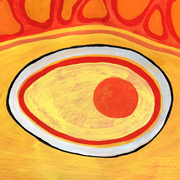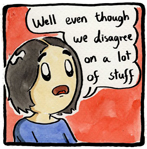(Thread IKs:
skooma512)
anime was right posted:yea i believe in stock buybacks. we put shareholders into stocks who must buyback their freedom Labor camp commissary prices change based on market conditions hourly. You can buy futures to bet and hedge against the price, or subscribe to Gruel Plus to get a fixed price but with variable interest based on the highest fed market rate (like a student loan). Commisary debt cannot be discharged in bankruptcy and will be inherited by next of kin. This is an inspiring step forward towards truly market based and market themed solutions in reeducation.
|
|
|
|
|

|
| # ? May 26, 2024 00:45 |
|
anime was right posted:one of the big problems with weight loss is like, if your body needs like 1200-1400 calories for natural homeostasis to just exist (like, enough energy for functioning organs and getting adequate nutrition). you need to eat that or lower to really see results if you're like trying to drop from 1800 calories a day or something. so you're basically eating "under" (like 1000-1200 calories in this case) what your body is screaming at you for which is truly and utterly miserable because thats what you need to live and your hormones react accordingly. otherwise it will take you years to lose an adequate amount of weight because you're operating at like, a razor thin 50 calorie deficit which will take you multiple years to lose even 10 pounds. My issue eating under was always that I would feel like absolute poo poo and basically be nauseous the entire day. So sure, I could get down to an ideal weight if I wanted my life to be pure suffering for the years it took to get there. And lol at maintaining too. Whatever, give everyone ozempic, I don't give a poo poo. Seems like a lot of grousing is driven from people irritated that people don't need to "put in the effort" anymore, even though for many that wasn't even a reasonable course of action to begin with.
|
|
|
|
in the breeding season i subsist entirely on the morning dew and become translucent
|
|
|
|
|
quote:Absolutely! I'm sure the caloric conversion to energy varies from person to person too. I don't think metabolic rate/genetics/gut issues are root causes in the obesity epidemic. Yes, you do have a small amount of people with these things that can cause extreme weight loss or gain. But I don't think the variability between individuals is not as great as most people think. I can't find the source, but IIRC the genetic difference in fat gain between people is only 13% on average. I think +90% is environmental. Particularly how children are raised in relation to food. Japan has a very low obesity rate and check out there school lunch programs compared to America: https://www.youtube.com/watch?v=WIsWhmMmHQs
|
|
|
|
Japan at least in urban areas also has a robust public transit system that allows you to walk everywhere
|
|
|
|
These takes are fine, but last call for diet chat, 5 minutes from this post
|
|
|
|
|
my tears alone contain enough fat to nourish a baby blue whale to maturity
|
|
|
|
|
Scarabrae posted:Japan at least in urban areas also has a robust public transit system that allows you to walk everywhere Hmm.. and yet public transport moves you around without needing to walk. Curious.
|
|
|
|
calls for posting diets are calls for self harm
|
|
|
|
anyways here’s fun article https://www.okdoomer.io/what-happens-when-you/ quote:Scientists played a cruel little trick on some mice.
|
|
|
|
an egg posted:i am so immense i have my own weather system. i cannot exercise due to the disruptive effect on the tides not exerting one's own gravitational pull is a bourgeois affectation
|
|
|
|
FacelessVoid posted:I don't think metabolic rate/genetics/gut issues are root causes in the obesity epidemic. Yes, you do have a small amount of people with these things that can cause extreme weight loss or gain. But I don't think the variability between individuals is not as great as most people think. I can't find the source, but IIRC the genetic difference in fat gain between people is only 13% on average. gut biome is purely environmental and your guts heavily influence your brain. some of the most important brain chemicals that alter mood are almost exclusively made in the gut. gut bacteria do a ton of your digestion for you.
|
|
|
|
Scarabrae posted:Mousechat I agree, give me sugar and the violent end of the oligarchy
|
|
|
|
Scarabrae posted:anyways here’s fun article legit wonder if task initiation from ADHD/autism/etc is caused by something related to this chemical. ive only ever seen discussions on dopamine and poo poo.
|
|
|
|
anime was right posted:legit wonder if task initiation from ADHD/autism/etc is caused by something related to this chemical. ive only ever seen discussions on dopamine and poo poo. I think you're describing dopamine. It's one of the reasons adults with ADHD are either overweight (dopamine hit from eating, eating when bored, too focussed on something else to exercise) or underweight (indifferent to food, amphetamines, too focused on something else to eat), or fit (dopamine hit from exercise, exercise is interesting) , or cycle between the three states, but usually not at some sort of stable weight, diet and exercise regime.
|
|
|
|
Frosted Flake posted:I think you're describing dopamine. i mean the chemical is overproduced and then task avoidance immediately happens and from a brief bit of research it looks like PTSD triggers this chemical too and that also kills peoples motivations/emotions so i dunno. dopamine does help obviously but this could be the source of the imbalance. seems interesting
|
|
|
|
I know a lot of people that have the ADHD/PTSD one-two punch, so that's a bit interesting. I was also reading that how ADHD/PTSD present in women is more often considered characterological than the same behaviours presented in men, so there's a social dimension to all of this as well. Specifically women who suffer abuse, or even just have ADHD (?) are considered bad, for lack of a better word, because their behaviour is considered a result of their choices/personalities rather than symptomatic. I don't know how you would even begin to untangle some of these webs. Frosted Flake has issued a correction as of 20:53 on Jan 27, 2024 |
|
|
|
Frosted Flake posted:I know a lot of people that have the ADHD/PTSD one-two punch, so that's a bit interesting. yeah i have PTSD but i dont think its directly ADHD related, but i wouldnt be shocked if the presence of ADHD makes PTSD more common either through how other people treat people with ADHD or chemical triggers that are more likely to happen
|
|
|
|
anime was right posted:yeah i have PTSD but i dont think its directly ADHD related, but i wouldnt be shocked if the presence of ADHD makes PTSD more common either through how other people treat people with ADHD or chemical triggers that are more likely to happen The example given was that most, iirc nearly all, women on LA's Skid Row who use meth were victims of CSA, in addition to their descriptions of meth as calming hinting that they might be trying to self medicate for undiagnosed ADHD. If there's a relation, it's possible they're also self-medicating for PTSD, which, incidentally seems to explain virtually all the drug and alcohol use among women in that segment of the sex trade. But obviously these are people who society has failed in virtually every way so trying to identify and treat their ADHD is pretty far down the list of help they'd need.
|
|
|
|
The economy is expanding, and you must expand with it
|
|
|
|
blatman posted:im no expert but 80lbs a year for 13 years sounds unsustainable You're definitely not an expert at reading.
|
|
|
|
I’m convinced my basal metabolic rate is like 2
|
|
|
|
Glumwheels posted:A place I’ll no longer shop at my gf is very unhappy about this but you know no ethical consumption under capitalism 
|
|
|
|
Unions are collapsing everyday.
|
|
|
|
food - if you are a vegetarian get your B12 levels checked
|
|
|
|
actionjackson posted:food - if you are a vegetarian get your B12 levels checked just drink energy drinks et voila it's fine
|
|
|
|
actionjackson posted:food - if you are a vegetarian get your B12 levels checked imo everyone should be taking vitamin supplements, especially if you're vegetarian/vegan, because there's every chance you don't get enough in your food anyway, is number going to plummet enough by November to get Trump reelected
|
|
|
|
Scarabrae posted:anyways here’s fun article https://youtu.be/YwCSmVHzhqM
|
|
|
|
this FT article made the rounds on CSPAM when it was published in December, rightly so:   showing China fully ascendant as the largest economy in the world, if one were to account to currencies, asset prices, and everything else accounted for in the IMF's measure of purchasing power. the difference is even starker if one were to look at kilowatt hours as a raw measure of human and economic activity  in a similar vein, Dylan Sullivan, Michail Moatsos & Jason Hickel published a new paper, "Capitalist reforms and extreme poverty in China: unprecedented progress or income deflation?" comparing nominal (though PPP-adjusted) World Bank measure of poverty versus a more specific measure, the OECD-approved "Basic Needs Poverty Line": The Abstract posted:It is widely believed that China's socialist economy had relatively high rates of extreme poverty while the capitalist reforms of the 1980s and 1990s delivered rapid progress. This narrative relies on World Bank estimates of the share of people living on less than $1.90 a day (2011 PPP), which show a sharp decline from 88 per cent in 1981 to zero by 2018. However, the World Bank’s poverty line has been critiqued for ignoring variations in the actual cost of meeting basic needs. In this paper we review data published by the OECD on the share of people unable to afford a subsistence basket. These estimates indicate that from 1981 to 1990, when most of China’s socialist provisioning systems were still in place, the country’s extreme poverty rate was on average only 5.6 per cent, substantially lower than in capitalist economies of comparable size and income at the time: 51 per cent in India, 36.5 per cent in Indonesia, and 29.5 per cent in Brazil. China's comparatively strong performance is corroborated by data on other social indicators. Moreover, extreme poverty in China increased during the capitalist reforms of the 1990s, reaching a peak of 68 per cent, as privatisation inflated the prices of essential goods and thus deflated the incomes of the working classes. These results indicate that socialist provisioning policies can be effective at preventing extreme poverty, while market reforms may threaten people's ability to meet basic needs. IMF "Dollar a Day" ($1.90 at 2011 PPP) Poverty vs.OECD subsistence basket measures of poverty in China:  and here is an international comparison of the substinance basket from '81 to '08:  the paper goes into detail to show that the substinance basket better correlates with other QoL indicators such as infant mortality, maternal mortality, and educational attainment, leading to these highlights from the discussion and conclusion: quote:The standard narrative about extreme poverty in China holds that the socialist period was marked by some of the lowest living standards in the world, and that progress against extreme destitution began with the capitalist reforms. However, this narrative relies on the World Bank’s poverty line of $1.9-a-day, which fails to account for international differences in the relative price of food and other basic need-satisfiers. This is problematic because China’s extensive public provisioning and price control systems ensured that the price of essentials was low relative to other items. In this paper, we have instead looked at the ‘basic needs poverty line,’ as estimated by Moatsos (Citation2021), which allows us to directly assess whether the population could meet a set of minimum physiological needs. This approach yields results that contradict the dominant narrative. Data on basic needs reveals two things: First, that during the 1980s, when much of China’s socialist economy was still in place (see, Figure 2), China had some of the lowest extreme poverty rates in the developing world; and second, that China’s capitalist reforms, in particular the privatisation drive of the 1990s, caused a major rise in poverty. obviously I don't agree with their final assessment, but it's fair to look at the very real human cost of Dengism. a painful tradeoff that seems to have been worth it webcams for christ has issued a correction as of 21:50 on Jan 27, 2024 |
|
|
|
net work error posted:https://twitter.com/josheidelson/status/1751004231342174408?t=Njd4LI8MKznADmBn4ntRJQ&s=19 wont make me stop going to aldis
|
|
|
|
RadiRoot posted:wont make me stop going to aldis Aldi Süd operates the Aldis in the USA. Aldi Nord operates Trader Joe's. fully separate corperations
|
|
|
|
im sure its still bad for some reason or another. no ethical consumption etc.
|
|
|
|
stocks up, great now we can shed some of that dead weight ie the workforce i hate these people
|
|
|
|
I’m at the econ thread I’m at the weight loss thread I’m at the combination econ weight loss thread
|
|
|
|
19 o'clock posted:I’m at the econ thread economies of scale
|
|
|
|
webcams for christ posted:Aldi Süd operates the Aldis in the USA. Aldi Nord operates Trader Joe's. fully separate corperations Isn't the reason that the Aldi corporation split in half because of an argument over whether to sell cigarettes?
|
|
|
|
Twerk from Home posted:Isn't the reason that the Aldi corporation split in half because of an argument over whether to sell cigarettes? 
|
|
|
|
net work error posted:https://twitter.com/josheidelson/status/1751004231342174408?t=Njd4LI8MKznADmBn4ntRJQ&s=19 Trader Joe's has union busted for many years - no shock here.
|
|
|
|
webcams for christ posted:Aldi Süd operates the Aldis in the USA. Aldi Nord operates Trader Joe's. fully separate corperations They're owned by the same family of German billionaires
|
|
|
|

|
| # ? May 26, 2024 00:45 |
|
i purchase all my oil from the good koch brother
|
|
|

































